Do you have trouble breathing and feel a tightness in the chest? Do you hear a musical sound while breathing? Doctors call this wheezing, and it is a common sign while diagnosing any respiratory disorder. One such respiratory disorder may be asthma which can affect anyone, especially children. It is of different types depending on the cause, etc. Asthma is a simplified term for bronchial asthma, a long standing and life-threatening condition affecting the lungs. It mainly occurs when the airway gets blocked due to narrowing or excess mucous. Your doctor might prescribe you medications which might be effective in helping with the symptoms of asthma. Let’s find out more about this disease1.
There is no clear explanation why some people have asthma and others don’t, but there is ongoing research on this subject. Factors that might put certain people at a higher risk for asthma are1:
Asthma can delay physical development in children and may be a common cause of repeated respiratory infection, it should not be left untreated, especially in children.
Dr. Ashish Bajaj, M.B.B.S., M.D. in Clinical Pharmacology and Toxicology
Generally, the asthma symptoms are very obvious and resemble the signs and symptoms of other respiratory diseases1. Some of the common symptoms are as follows:
Knowing the warning signs and the triggers of an asthma attack can help you avoid or control your asthma. When you follow your doctor’s advice and take medicines exactly as they tell you to, you might be able to have control over your asthma; you can then notice:
Pulmonologist or pediatrician opinion and Metered dose inhalers form the basis of treatment of asthma. Home remedies help in control of asthma.
Dr. M.G. Kartheeka, MBBS, MD(Pediatrics)
The home remedies for asthma mentioned below need more research to be incorporated in daily life. As asthma can be a life-threatening disease, it is a serious condition and must be diagnosed and treated by a doctor1. According to the currently available data, the following might be helpful for asthma.
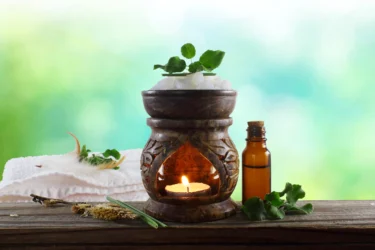
Karpoorathy oil might help with asthma. It might help to relieve the phlegm that gets accumulated in the chest and might help in breathing freely. An ayurvedic physician might suggest the application of the oil to your back and chest. However, more research is required to state the potential effects of karpoorathy oil on asthma. Kindly consult a doctor before using it. Please do not self-medicate3.

Kayakarpam (a division of Siddha medicine) mentions breathing exercises for people with asthma. These breathing exercises are known as pranayama. These exercises might help strengthen the respiratory system, which might help with asthma. They might also help in lowering stress. Please ensure that you consult with an expert in Siddha to guide you through the pranayama exercises3.
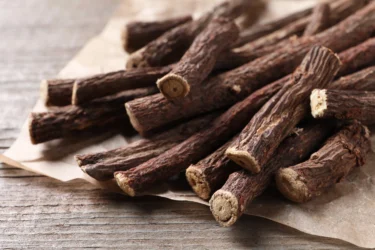
Mulethi is also known as yashtimadhu or liquorice root. It is scientifically known as Glycyrrhiza galbra and belongs to the family Fabaceae. It might have the potential to help with asthma. A tea made from the root of liquorice might be recommended by your Ayurvedic physician. To make the tea, you should take the root and boil it in water. Drinking this tea might be helpful for asthma. However, more studies are required to prove the potential effects of mulethi on asthma. Please consult a doctor before using it. Do not self-medicate4.
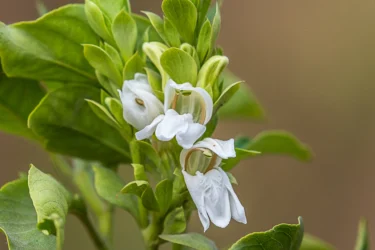
Vasa is known as vasaka (English), arusa (Hindi), basanga (Oriya) and bhekar (Punjabi). It is known by many different names in regional languages across India. The scientific name is Adhatoda vasica and it belongs to the Acanthaceae family. A decoction made with vasa leaves along with dry ginger, long pepper and honey may be recommended by an Ayurvedic physician. This decoction might have the potential to help with cough associated with bronchial asthma. However, more research is required to ascertain these effects. Therefore, please consult a doctor before using it4.
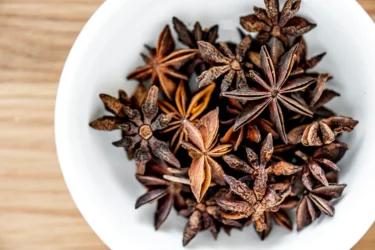
It is also known as chakra phool, anasphal, takkolam and badian. It might have the potential to help with asthma. Along with honey, it might help with bronchial cough associated with asthma. Therefore, it might be a herb used by Ayurvedic physicians. However, more research is required to prove its effect on asthma. Kindly consult a doctor before using it and do not self-medicate4.
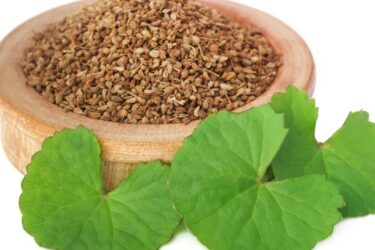
It is also known as Karpuravalli in Tamil, Pathurchur in Marathi and by various names such as Indian mint, Cuban oregano, Indian borage and Mexican mint in English. The leaves of this plant might help provide relief from the symptoms of asthma. Boiling a few leaves in water and inhaling the vapour might be helpful for asthma. It might also be helpful as a decoction with ginger, pepper and honey to relieve chest congestion. However, make sure to consult with a doctor before using it4.
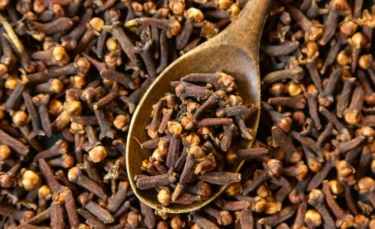
Clove is commonly used in Indian kitchens. It might help with asthma as well. It is used to make a decoction. To make the decoction, you should take the coarse powder of clove, a few tulsi (basil) leaves and black pepper and boil them in some water. Drinking this preparation might be recommended by your Ayurvedic physician. However, more research is required to back up such claims. Therefore, please consult a doctor before using it4.

It is referred to as Indian birthworth or serpent root. Its scientific name is Aristolochia indica and it belongs to the Aristolochiaceae family. It might help with bronchial asthma. The plant root powder with some honey may be recommended by your Ayurvedic doctor to help with your asthma. It might also help with cough, fever and toxicities. However, more research is required to prove the effects of isvari on asthma. Kindly consult a doctor4.
Though there are studies that show the benefits of the given herb and home remedies in the condition, these are insufficient. There is a need for large scale human studies to establish the true extent of the benefits of these home remedies on human health. Thus, these should only be taken with caution and never as a substitute for medical treatment.
Asthma is a serious condition and must be treated by a medical professional. Do not try to self-medicate. In case of a severe asthma attack, make sure to follow the following steps:
You should look out for the following signs and should seek immediate emergency medical care
You must not rely on home remedies alone for the treatment of condition and should consult a qualified doctor for any advice for condition if the symptoms do not improve with home remedies.
Asthma is a disease of the lung and you might notice coughing, wheezing, tightness of chest, etc. as symptoms. It can be a life endangering situation if not treated properly. The exact reason for the occurrence is not known but genetics, environment, allergies, etc. might play a role. There are a few home remedies for asthma like, clove, ajwain patta, pranayama, etc. which might help with asthma. However, more research is required to prove the possible positive effect that these herbs for asthma treatment might have. Moreover, asthma is a serious condition and must be diagnosed and treated by a doctor. Please do not use the above-mentioned herbs to self-medicate.
Also Read: Effective Home Remedies For Hiccups
Clove, ajwain patta, star anise, mulethi, vasa, etc. might have a potential to help with asthma and might act as home remedies for asthma. However, more research is required to prove their potential use. Moreover, a doctor must be consulted before using these herbs for asthma3,4.
Clove or Lavanga might have a potential to help with asthma. Its use in the form of a decoction along with pepper and ginger might be recommended by your Ayurvedic physician. More research is required to prove such claims. Kindly consult a doctor before using it4.
Pranayama might be recommended by your Siddha medicine practitioner and might be helpful for asthma as it might help to strengthen the respiratory system3.
No. You should not use any herbs to self-medicate. You must not alter, replace or discontinue any ongoing medical treatment. Kindly follow your doctor’s advice as asthma can be a life-threatening situation and must be diagnosed and treated by a qualified doctor1.
The herbs that might have a potential to help with asthma are ajwain patta, star anise, clove, isvari, vasa etc. However, there is more research required to ascertain the potential use of these herbs for asthma. Therefore, you should consult a doctor before using them4.
Disclaimer: The information provided here is for educational/awareness purposes only and is not intended to be a substitute for medical treatment by a healthcare professional and should not be relied upon to diagnose or treat any medical condition. The reader should consult a registered medical practitioner to determine the appropriateness of the information and before consuming any medication. PharmEasy does not provide any guarantee or warranty (express or implied) regarding the accuracy, adequacy, completeness, legality, reliability or usefulness of the information; and disclaims any liability arising thereof.
Links and product recommendations in the information provided here are advertisements of third-party products available on the website. PharmEasy does not make any representation on the accuracy or suitability of such products/services. Advertisements do not influence the editorial decisions or content. The information in this blog is subject to change without notice. The authors and administrators reserve the right to modify, add, or remove content without notification. It is your responsibility to review this disclaimer regularly for any changes.
While winter brings the joy of festivals and holidays, it can also worsen asthma symptoms.
Although the cold winter air is not a primary cause of asthma, it may trigger bronchospasm or exacerbate existing asthma (cold-induced bronchoconstriction) symptoms1.
Dry, cold air may aggravate asthma symptoms and increase the risk of asthma attacks in people who already have the condition or have sensitive airways1,2.
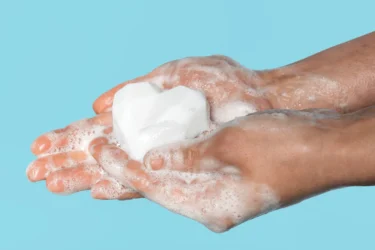
Frequent and proper washing of your hands with water and soap is one of the simplest and most effective ways to reduce the risk of catching or spreading viruses, including cold, flu, COVID-19, and gastroenteritis3. Using alcohol-based hand sanitisers also helps reduce the risk.
While handwashing lowers the risk of infection, it cannot completely help you avoid illnesses, especially those spread through the air, such as cold and flu viruses. Therefore, the emphasis should be on teaching good hand hygiene to your children and educating them that it is one of the most basic and essential steps in staying healthy.
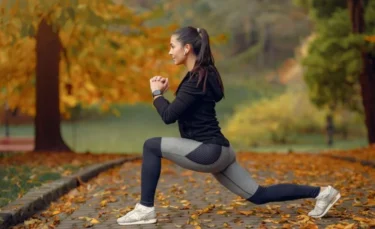
Cold weather doesn’t mean you have to give up your exercise routine, but it’s best to exercise indoors when possible. In individuals with asthma or exercise-induced bronchospasm, exposure to cold air can trigger airway narrowing during physical activity4,5.
However, if indoor exercise is not possible, instead of avoiding exercise altogether, consider strategies such as a proper pre-exercise warm-up, using prescribed bronchodilators6.

Warming up before exercise can help reduce the likelihood and severity of exercise-induced bronchoconstriction in people with asthma, especially during winter workouts4.
An indoor warm-up, such as using a treadmill for several minutes, allows the gradual adaptation of airways to physical activity and cold conditions, reducing the severity of bronchospasm7. Please note that while the exact warm-up duration can vary, even 5 to 10 minutes of progressive warm-up may help lower the risk of bronchospasm during outdoor exercise.

Work with your specialist or doctor to create an effective asthma treatment plan for the winter, and continue to get regular checkups done. Cold weather or exercise can trigger bronchospasm even in people without chronic asthma, so it’s important to seek medical advice if you experience new or worsening asthma symptoms8. Take all prescribed medications (including controller medications like inhaled corticosteroids or leukotriene modifiers) consistently, not just asthma relievers, to help avoid winter exacerbations1.

Make sure to vacuum and dust your home frequently to reduce allergens since everyone will be spending a lot of time indoors during the winter. Dust all over using a damp cloth, and use a vacuum with high efficiency (HEPA) filter to clean carpets and fabric-covered furniture. Keep your home smoke-free, as secondhand tobacco smoke is a well-established asthma trigger9. Smoke from candles and fireplaces can also worsen symptoms, though it is generally less potent than tobacco smoke.
Other than the tips mentioned above, make sure to take the basic precautions like wearing a scarf or turtleneck up over your mouth and nose to warm the air you’re inhaling when outside, to avoid asthma attacks during winter.
Cold weather and indoor allergens can trigger asthma symptoms or exercise-induced bronchoconstriction, but proper planning and precautions can help manage them.
Key strategies to avoid triggering asthma include adhering to prescribed controller medications, warming up before exercise, covering the mouth and nose outdoors, maintaining good indoor air quality, and practising hand hygiene. People with asthma can stay active and healthy throughout the winter with these measures.
Disclaimer: The information provided here is for educational/awareness purposes only and is not intended to be a substitute for medical treatment by a healthcare professional and should not be relied upon to diagnose or treat any medical condition. The reader should consult a registered medical practitioner to determine the appropriateness of the information and before consuming any medication. PharmEasy does not provide any guarantee or warranty (express or implied) regarding the accuracy, adequacy, completeness, legality, reliability or usefulness of the information; and disclaims any liability arising thereof.
Links and product recommendations in the information provided here are advertisements of third-party products available on the website. PharmEasy does not make any representation on the accuracy or suitability of such products/services. Advertisements do not influence the editorial decisions or content. The information in this blog is subject to change without notice. The authors and administrators reserve the right to modify, add, or remove content without notification. It is your responsibility to review this disclaimer regularly for any changes.